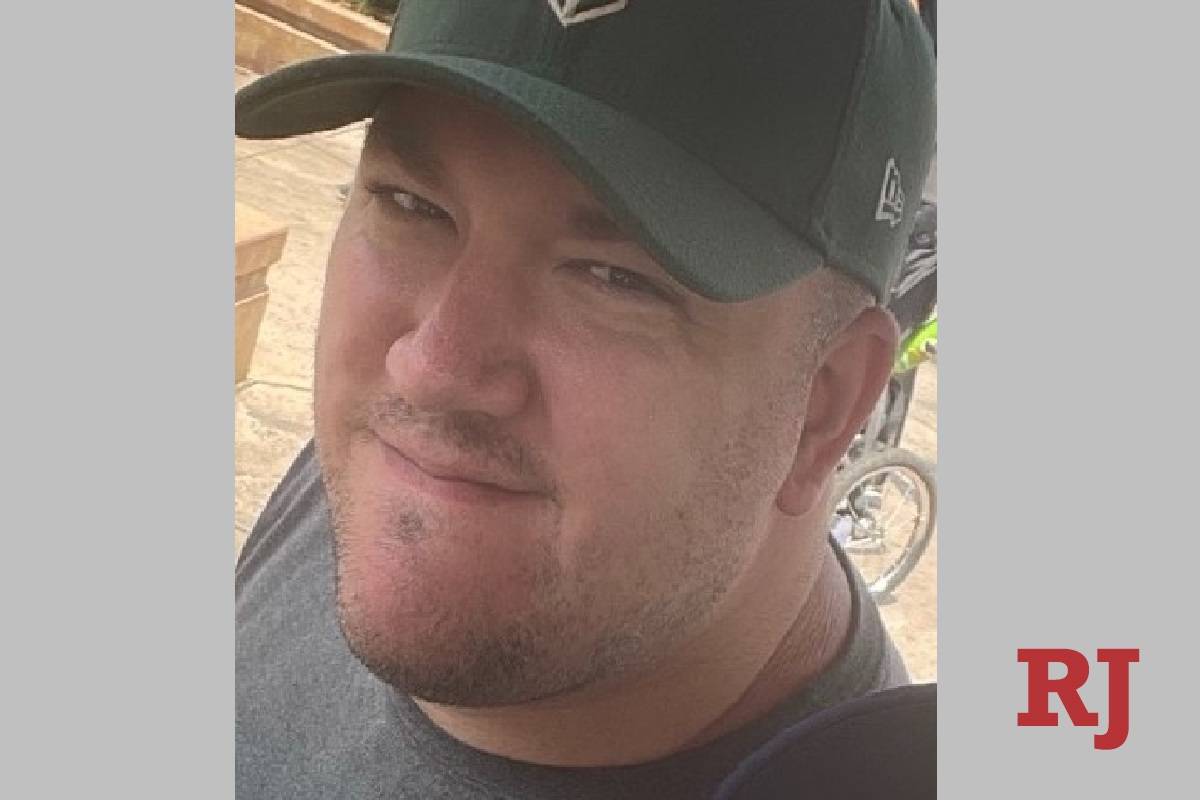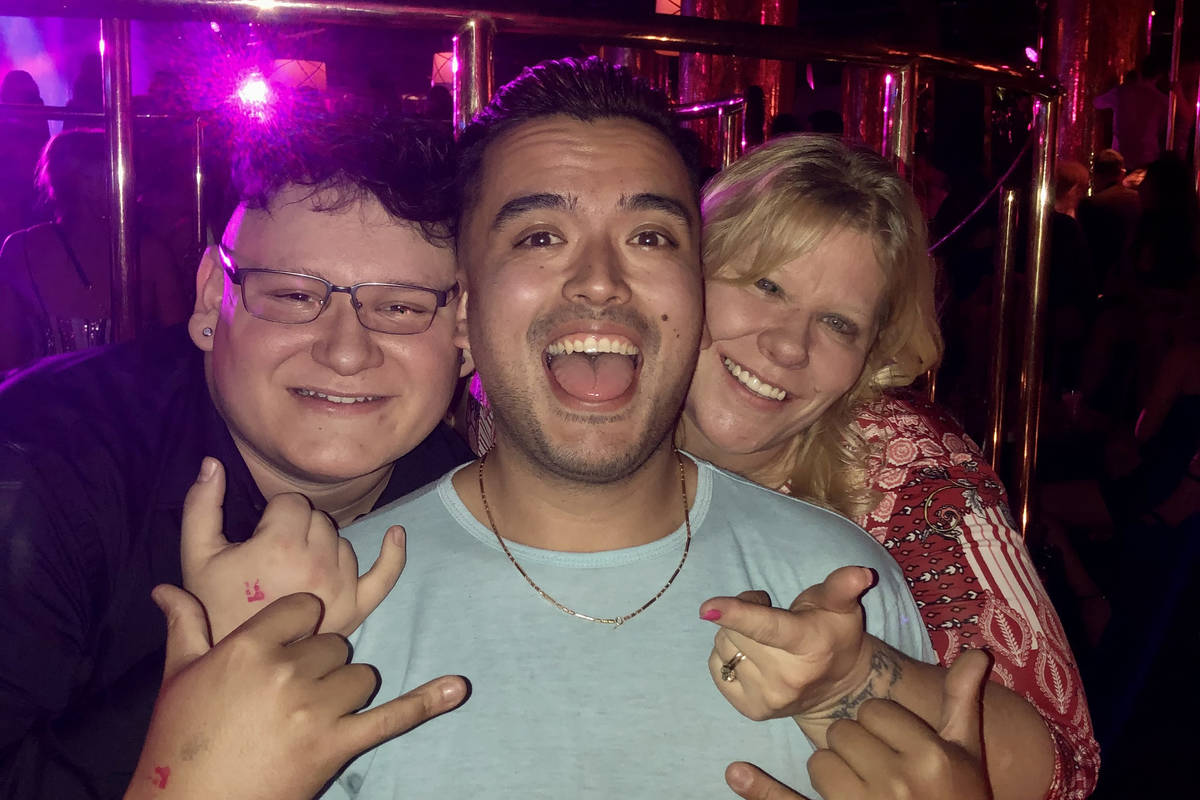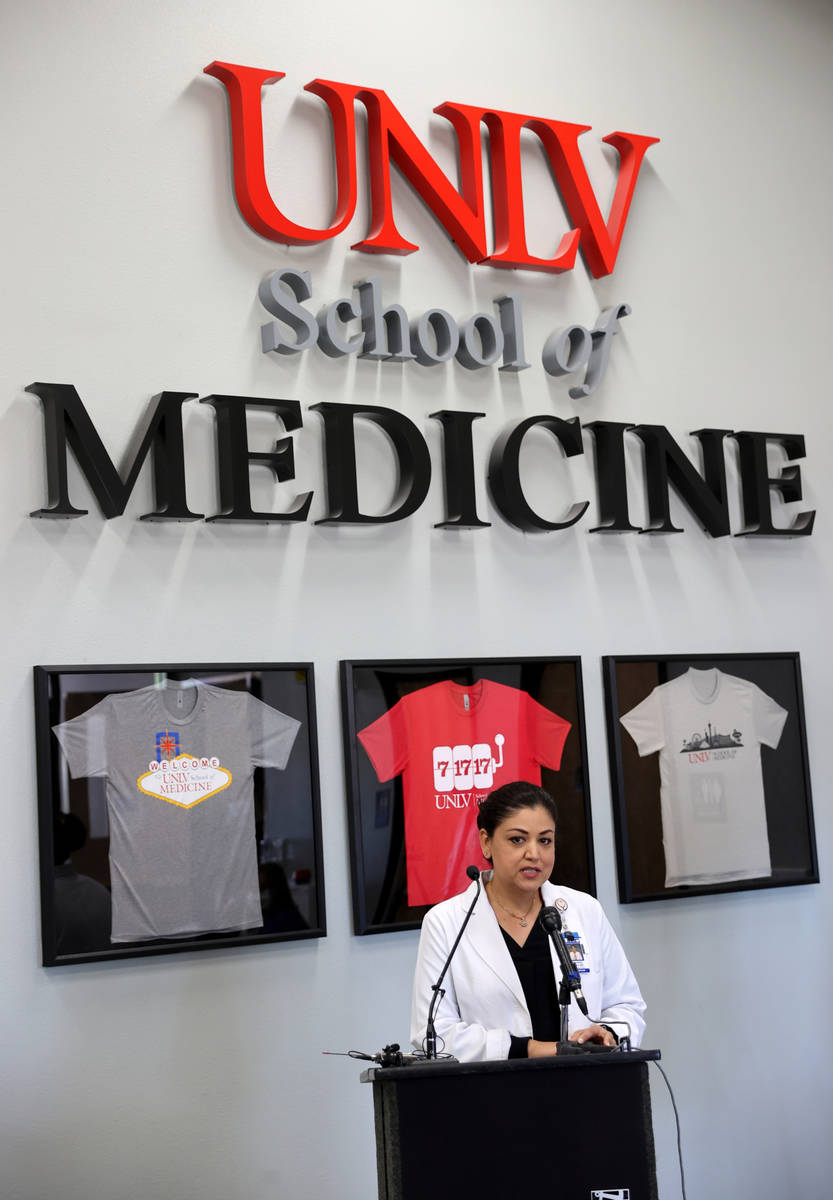COVID’S summer wave hitting younger, healthier Nevadans
Younger Nevadans are the face of the current COVID-19 surge in hospitalizations and deaths.
People ages 25 to 49 years old made up 15 percent of deaths between June 1 and Aug. 15, nearly double their 8 percent share of deaths across the entire pandemic. In the same time frame, almost one-third of deaths were in people ages 50 to 64, compared with just one-fifth of all deaths since March 2020, state health data shows.
People ages 65 and older are accounting for a lower share of deaths in this most recent wave of the pandemic. Local health experts say that age is no longer the strongest indicator for whether an infected person will be hospitalized or die.
Instead, it is whether the person is vaccinated or not.
“The median age of a patient with COVID who requires admission to the hospital has been reduced by almost a decade,” from 60 to 50, said Dr. Shadaba Asad, medical director of infectious disease at University Medical Center. “It is a younger patient population, and by far these are unvaccinated patients.”
As the highly contagious delta variant sweeps Nevada, more than 360 new deaths have been announced statewide in August. It is already the state’s fifth-deadliest month of the pandemic, and it could end as the fourth-deadliest if trends hold steady.
The death toll in Clark County officially surpassed 5,000 deaths on Wednesday. More than 600 of those deaths have been announced since June 1, around when the most recent surge began.
UNLV epidemiologist Brian Labus said that though the average number of new cases has plateaued in recent days, there can be a weekslong lag in the reported deaths trend.
“It takes time for (a patient) to progress to the point where they need to be hospitalized,” he said. “Once they’re hospitalized, people don’t die immediately.”
The Southern Nevada Health District reports it’s too early to determine how many of those hospitalized or who died since June 1 had underlying medical conditions.
That’s because disease investigators must contact the infected patients or relatives to ask about their medical history, and then those interviews must be verified through health records. With an average of more than 1,000 new cases being identified each day in the state, it takes time.
But Asad said she has noticed an uptick in otherwise healthy patients at UMC and other Las Vegas Valley hospitals.
“Now we see these very young people in their 30s. … They have a perfectly normal (body mass index) and no medical problem whatsoever,” she said. “In a way, it’s very scary.”
23-year-old dies of COVID
Micheal Limon’s family said he was an otherwise healthy 23-year-old when he tested positive for COVID-19 this month. He had not received the vaccine.
After a few days, however, the usually energetic Las Vegas resident was having difficulty breathing. He checked into Desert Springs Hospital Medical Center on Aug. 9.
He died Aug. 13, just a few hours after he was placed on a ventilator, said Dylan Limon, his younger brother.
“We thought he would work through it, and it was a total shock that he didn’t,” Dylan Limon said.
All family members were vaccinated, except for Micheal, relatives said. They are raising money through a GoFundMe campaign to pay for his medical bills and funeral expenses.
Since the pandemic began, more than 400 county adults under the age of 50 have died. Five children have died, including one younger than 5 years old.
Labus said the grim reality bucks widely accepted ideas early in the pandemic, that COVID-19 posed little risk to younger, healthy people.
“Even though the risk is lower among younger people, it’s not a zero-risk situation,” he said. “Younger people are still dying from this every single week.”
On July 29, a 39-year-old father of five, Mike Freedy, died of COVID-19 in an area hospital. He had decided to wait a year to get the vaccine. From his hospital bed, days before he died, the Las Vegas man texted his fiancée: “I should have gotten the damn vaccine.”
Latino death rates drop
Local health experts said younger people now make up a greater share of deaths because they have lower vaccination rates.
Almost 80 percent of Clark County residents age 70 and older had completed the vaccination process as of Friday. That percentage dropped with each age group, and fewer than half of people between age 20 and 39 were fully vaccinated.
Similarly, Latino residents have seen their share of deaths drop from 27 percent across the entire pandemic to just 18 percent of the most recent wave. The demographic group showed a jump in new vaccinations in recent months.
As of August, Latinos make up the second-most-vaccinated racial and ethnic group in Clark County. The leading group, Asian-Americans, also saw their share of deaths drop.
“I do think it’s directly related to the increase in vaccination,” said Kimberly Hertin, disease surveillance supervisor for the Southern Nevada Health District.
Breakthrough cases
Hertin noted that while thousands of breakthrough cases have been reported in vaccinated Clark County residents, hospitalization and death remain rare among the fully immunized.
Fully vaccinated people make up less than 4 percent of all Clark County residents hospitalized with COVID-19 this year, according to the latest data released Aug. 19. They make up less than 4 percent of those who have died.
More than 960,000 Clark County residents are fully vaccinated. Of those, 304 had been hospitalized and 87 had died after contracting COVID-19, the data showed.
“We’re really talking about a rare event, but people have this perception that it’s much more common than it really is,” Labus said. “People think that the vaccine has little value because there are breakthrough cases that occur. That’s not the case at all.”
There is also the likelihood that younger people will participate in more activities that put them at risk for COVID-19. That ranges from being a part of Nevada’s workforce to attending crowded events.
Such behaviors pose even more of a danger with the delta variant circulating, Hertin said.
“The problem is just the volume of which infections are occurring based on the fact that it’s so transmissible,” she said. “So anytime you increase the volume of cases, then you’re going to right behind that have an increase of hospitalization and death.”
Contact Michael Scott Davidson at sdavidson@reviewjournal.com or 702-477-3861. Follow @davidsonlvrj on Twitter.




















